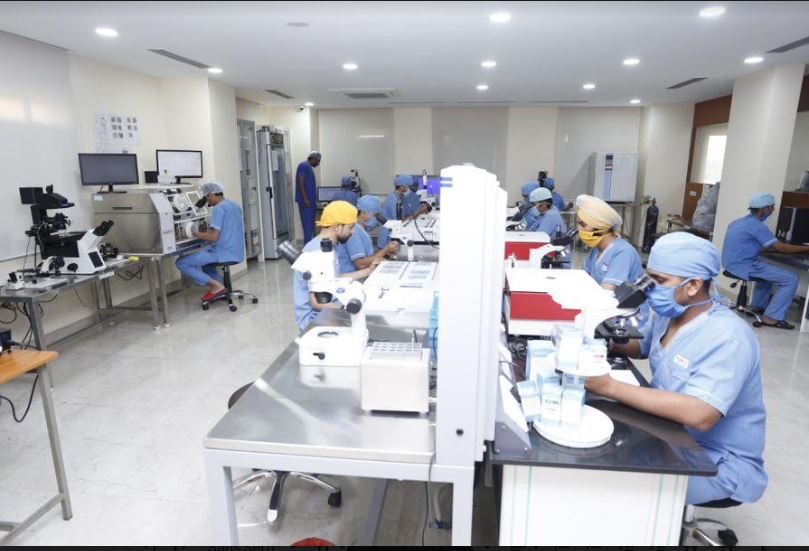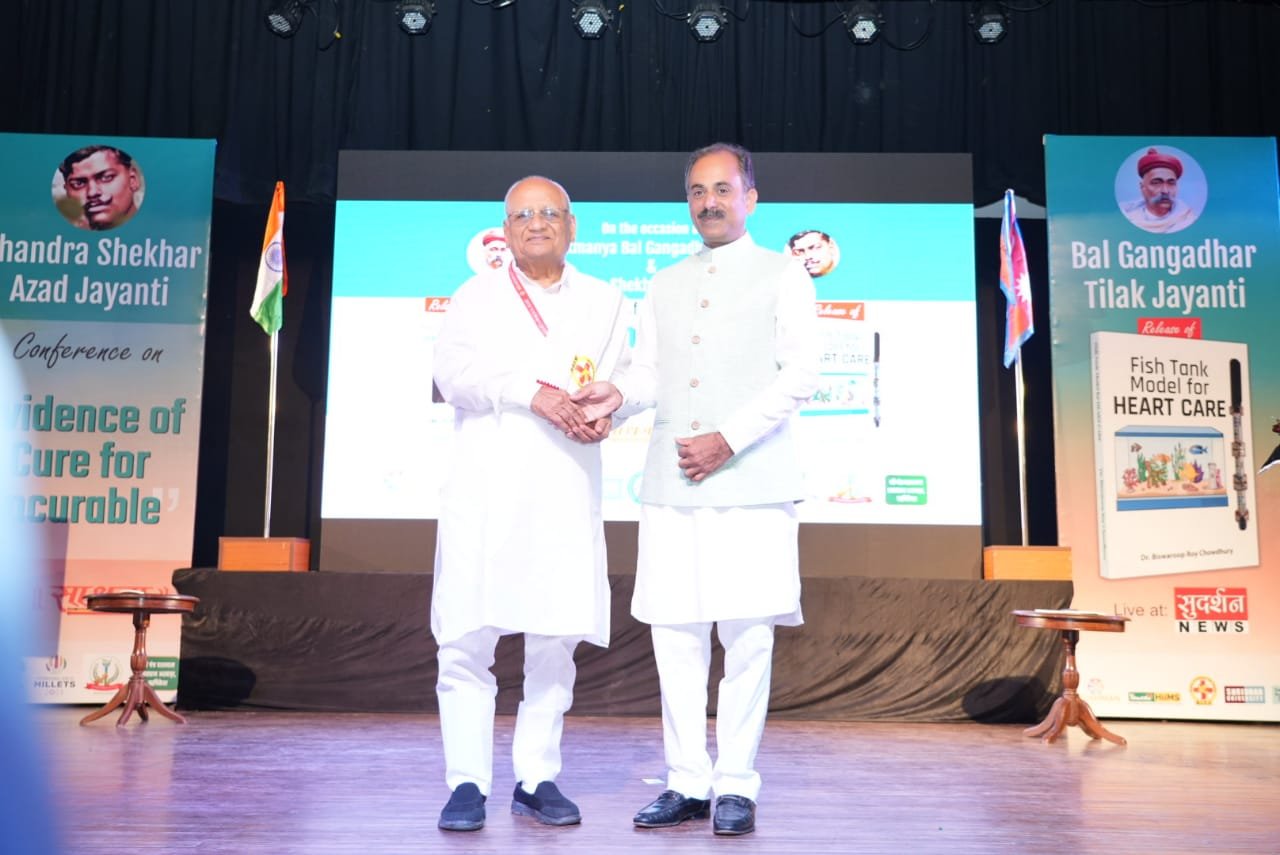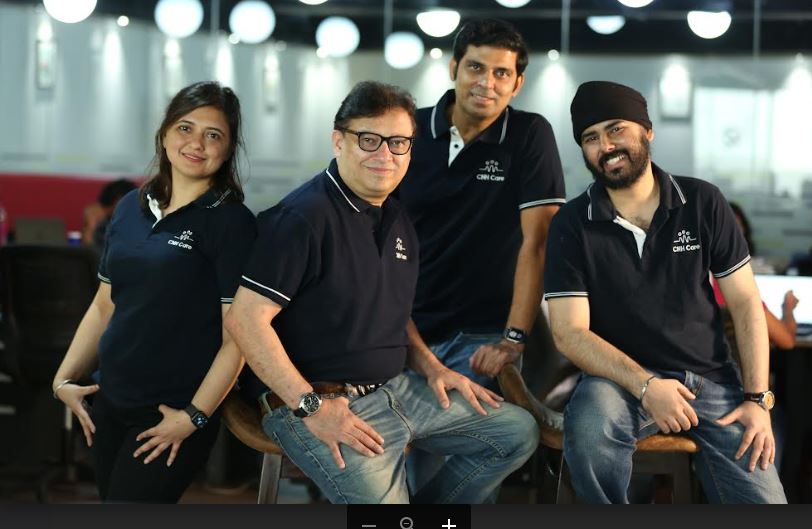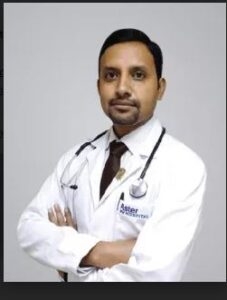PCOS is Polycystic ovarian syndrome, it is increasing swiftly worldwide and fortunately, so is the research work for the PCOS treatment options according to a 2011 study. As per a 2021 study, the occurrence of PCOS in India is increasing, such that one in every five girls suffers from this disorder. A female suffering from it worries about the different symptoms of PCOS ranging from reproductive problems to hair fall.
PCOS is a common hormonal disorder that manifests as acne, hirsutism (scalp hair thinning and excessive hair elsewhere), insulin resistance, irregular menses and problems in the physiological ovulation cycle often resulting in infertility. The PCOS causes include the bad effects of stress, lifestyle changes, etc. PCOS-induced hair fall is one of the commonest unmanageable hurdles a woman faces. Moreover, several nutritional deficiencies like iron, vitamin B12, Vitamin D3, etc. may act as a trigger for more hair loss.
Why does PCOS cause hair loss?
he excess of androgenic hormones (male hormones) are responsible for all the symptoms of PCOS. In a 2020 study, involving female hair thinning, almost 8% of the women were having a diagnosis of PCOS confirmed through a sonography and hormone levels tests. The manifestation and extent of female pattern hair loss in PCOS varies as per the androgens hormone levels in our blood stream, and sensitivity of androgens in our hair follicle units.
Symptoms of PCOS-related hair loss
Various symptoms are associated with PCOS-related hair loss including:
- The hair becomes easily damaged as they are very limp and are lustreless.
- Daily increasing hair shedding with the reduced density of hair parting.
- Overnight collection of excess hair cast off on the pillows.
- While bathing, especially during hair wash, hair comes off in clumps.
If you suffer from such alarming symptoms, you need not get scared but opt for hair fall treatment immediately. Consult your trichologist for early hair fall control.
Is PCOS hair loss curable?
As you may have read till now that prompt action may turn this chaotic ploy of hormones ineffectual. PCOS can be safely dealt with if the appropriate hormonal balance is achieved. There are many treatment solutions available like home remedies, modern medical therapies, and Homeopathy. It is extremely important to opt for such treatment options which targets PCOS causes and not just curbs the symptoms.
Home remedies for PCOS-induced Hair loss:
The home remedies for PCOS related hair fall include the following:
- Dietary changes: Low glycemic index foods like unprocessed pulses, grains, low-fat dairy foods, nuts, fruits and vegetables are good for minimizing PCOS hair fall symptoms. Additionally, foods rich in saturated fatty acids including butter, cheese, coconut, palm oil, fried foods, skinned poultry, etc. must be reduced from diet to achieve effective control of PCOS.
- Supplementation of deficiency like biotin, zinc, selenium may help hair loss management in PCOS.
- It is essential to use good shampoo and conditioner to avoid more damage.
- Avoid using colors, hair dyes, and other such chemicals on your hair to prevent further weak hair.
- Always be gentle with your hair as they are already weak, use combs or brushes with care.
- Refrain from pulling your hair and avoid tight hairstyles and high ponytails.
- Sleep is also an important factor to consider.
- Avoiding Smoking forms a major part of lifestyle change.
Modern medicine for PCOS-induced hair fall:
The various medications for PCOS-induced hair fall:
- Oral contraceptives, antiandrogens, medicated shampoo are quite effective to control hair fall.
- The PCOS medications like metformin improve hormonal imbalance and insulin resistance and in turn help hair problems.
You must note that these medications have some adverse effects as well, therefore always make an informed decision when you visit your healthcare professional.
Be cautious and see a specialist when:
- When hair fall has reached a point where you are unable to manage you can visit a health professional.
- In case you are overwhelmed with symptoms then without further ado visit a specialist quickly.
Homeopathic treatment for PCOS
A 2021 study illustrates marked improvement in several cases of PCOS through homeopathic treatment. According to a 2005 study, multiple clinical trials took place in Europe on women having PCOS, it emphasized that 83% of them did not report any symptoms of PCOS and had proper ovulation cycles by taking regular homeopathic treatment. Numerous Homeopathic medicines are associated with PCOS induced hair fall like Thuja, Natrum muriaticum, Phosphorus, Kali carbonicum, etc. but it is always important to consult a homeopath before intake of any medicines as these medicines need to suit you particularly as an individual.
Homeopathy is a completely natural, safe and side-effects free treatment system that eliminates the root cause of the problem. It relieves the symptoms involved in PCOS along with reduction of hormonal imbalance, checking ovulation and also restores regular menses. A customized homeopathic medicine selected based on all aspects like mind, body and soul and targets the root of the PCOS problem healing from within.
Dr Batra’s® Exemplary Healthcare merit
At Dr Batra’s®, our doctors conduct a detailed consultation for patients affected with PCOS induced hair loss as homeopathy not only addresses symptoms but the root cause of the problem with proper understanding of the cause, onset and extent of the problem.
Homeopathic PCOS treatment help relieve the symptoms of its adverse effects, including acne, weight gain, and unwanted hair growth. Ovarian cysts can be successfully treated with homeopathy, removing the need for surgery.
Our homeopaths perform a video hair microscopic test where the magnification of hair and scalp up to 200 times is done to evaluate the extent of hair loss. A personalized treatment plan involving a single remedy for PCOS patients is devised as per a woman’s individual needs. The patients show improvement in terms of regular periods, hormonal balance, normal conception, along with a reduction in hair thinning, weight, and skin pigmentation. Dr Batra’s® has successfully treated patients for many women’s health problems like PCOS with 96% positive results.
Moreover, Dr Batra’s® has introduced some novel international hair treatment solutions like NewHair, Hair Booster, groHair which stimulate hair follicle and promote hair growth. These hair treatments are non-invasive, painless and safe when integrated with the goodness of homeopathy they give optimum results in PCOS induced hair loss. Dr Batra’s® hair doctors has successfully treated around 6,00,000 hair patients with a 92% positive result seen in every happy patient.





